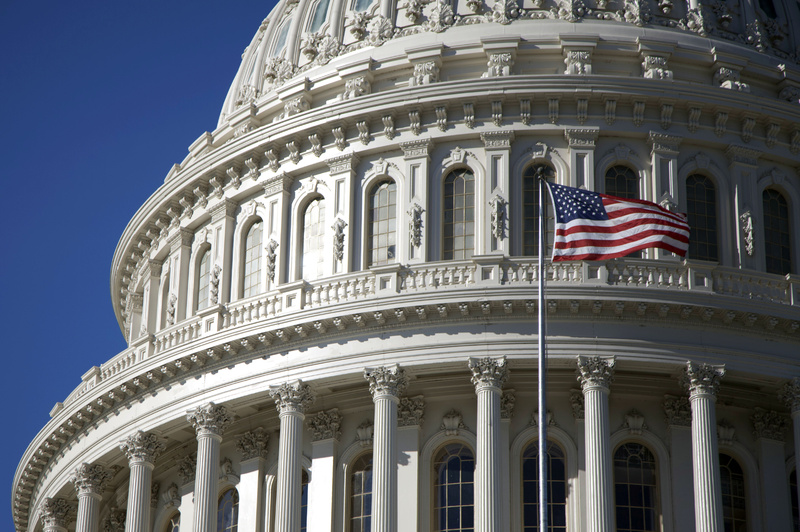WASHINGTON — Congress started July – its last full working month before the November elections – with a full plate. But it may not have the appetite to handle it all.
At the top of lawmakers’ to-do list is passing at least temporary funding for the Highway Trust Fund, which helps finance major road projects throughout the country and is projected to run out of money by late August.
Both chambers also need to advance a slate of government funding bills that must be passed by Sept. 30 to avert another government shutdown.
Finally, there’s the fight over whether to renew the Export-Import Bank and President Obama’s latest request for $3.7 billion in funds to address the border crisis.
But it’s unclear whether a Congress that is already known as one of the least productive on record will get all of that done.
First, time is running out. After this month, the House has just 12 working days planned before the Nov. 4 elections. The Senate is scheduled to be in session for September and October, but with control of the chamber at stake in November, few expect that to happen.
And even as they face a series of time-sensitive votes, both parties continue to push symbolic legislation that has little hope of passage but appeals to their respective bases in an election year.
Senate Majority Leader Harry Reid, D-Nev., for example, told reporters Tuesday that he was committed to taking action in the Senate to address the Supreme Court’s ruling in the Hobby Lobby case. That decision gave businesses owned by devout Christians the right to refuse to pay for insurance covering contraceptives for female employees.
Sens. Patty Murray, D-Wash., and Mark Udall, D-Colo., unveiled a bill Wednesday to prohibit for-profit companies from denying any health coverage, including contraceptives, guaranteed to their employees under the Affordable Care Act. A companion bill will be introduced by Democrats in the House, though it’s highly unlikely that Republican leaders will allow the plan to get a vote.
The Republican-led House, meanwhile, is preparing to spend one of its remaining work days voting to initiate a lawsuit against Obama for what the Republican leadership says is his failure to execute the nation’s laws as his oath requires.
Nevertheless, lawmakers are likely to tick off at least one item from their list.
In a break from gridlock, the House is expected to give approval Wednesday to a compromise measure that would consolidate federal programs that provide job-skills training and help workers find employment. The Senate passed the Workforce Innovation and Opportunity Act 95-3 last month.
“This is example of steps that can be taken to help Americans get back to work,” John Boehner said before the vote Wednesday. “It’s also an example where you’ve got a bipartisan effort in the House with a bipartisan effort in the Senate coming together to address the needs of the American people.”
But other initiatives that have bipartisan support may not move as quickly. Replenishing the Highway Trust Fund has been a priority for lawmakers in both parties, particularly as the construction season enters its peak. But after an apparent breakthrough before the Fourth of July recess between key House and Senate leaders, both chambers may be again moving on separate tracks.
On Thursday the House Ways and Means Committee plans to vote on a proposal from Chairman Dave Camp, R-Mich., to provide more than $10 billion in funding to sustain the trust fund through next May. The primary source of funds is through what’s known as “pension smoothing,” which allows businesses to defer payments to pension funds and thus increase the amount of taxable income in the short term.
Senate Finance Committee Chairman Ron Wyden, D-Ore., was expected to announce a revised proposal Tuesday, though negotiations are continuing with Republican members of the panel. Members of both parties have called the new House proposal insufficient. Republican Bob Corker of Tennessee, who has proposed raising the gas tax to replenish the trust fund, said Camp’s plan amounts to “generational theft” because it relies on borrowing money.
“The kind of patch they’re talking about keeps the indecision out there for months and months,” said Sen. Barbara Boxer, D-Calif., chair of the Environment and Public Works Committee.
Copy the Story LinkSend questions/comments to the editors.



Success. Please wait for the page to reload. If the page does not reload within 5 seconds, please refresh the page.
Enter your email and password to access comments.
Hi, to comment on stories you must . This profile is in addition to your subscription and website login.
Already have a commenting profile? .
Invalid username/password.
Please check your email to confirm and complete your registration.
Only subscribers are eligible to post comments. Please subscribe or login first for digital access. Here’s why.
Use the form below to reset your password. When you've submitted your account email, we will send an email with a reset code.